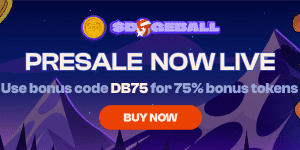Search engine optimization is no longer the simple, step-by-step process it used to be. In just a few years, SEO has transformed from a keyword-driven formula into a highly technical, AI-influenced ecosystem shaped by user intent, content quality, and evolving machine-learning models. Businesses that once relied on traditional tactics are now forced to rethink their strategies if they want to compete in today’s digital landscape.
2025 marks a turning point. AI, automation, voice search, advanced SERP features, and real-time personalization are rewriting the rules. Companies that adapt early are gaining a significant advantage, while those relying on outdated SEO playbooks are finding it harder to gain traction, rank consistently, or convert visitors into customers.
Whether you’re working with the best digital marketing agency or managing everything in-house, understanding these shifts is essential for building sustainable online visibility. This article breaks down the newest changes in SEO, why they matter, and how businesses can stay ahead.
AI Is Now the Backbone of Search
Artificial intelligence has become the core of how search engines evaluate websites. From how content is interpreted to how rankings fluctuate, AI models guide nearly every decision.
Modern search engines analyze:
- Search intent (not just keywords)
- Behavioral patterns and click signals
- Topical relevance and entity connections
- Page experience and technical health
- Content depth, accuracy, and trust signals
Google’s constant ranking model updates are fueled by machine learning, allowing the algorithm to adjust more frequently than ever. This means SEO is no longer updated in big waves — it’s updated continuously.
What this means for businesses
You need:
- Higher-quality content
- More topical depth
- Faster technical performance
- Clearer structure and schema
- A consistent publishing schedule
- Stronger authority across your niche
AI rewards brands that demonstrate clarity, experience, and value — and penalizes those offering generic or thin content.
Content Quality Now Outweighs Content Quantity
Years ago, producing a large volume of content was enough to gain visibility. Today, quality matters far more than volume. AI prioritizes content that demonstrates expertise, answers complex questions, and provides unique insights.
Businesses must rethink content creation from “posting often” to publishing strategically.
High-performing SEO content in 2025 must be:
- In-depth and well researched
- Written with clear authority
- Supported by credible sources
- Structured to satisfy user intent
- Connected to related cluster topics
- Easy for AI and users to interpret
This is why many companies now rely on seo experts near you who understand how to produce content that aligns with AI-driven search behavior.
Search Intent Is More Important Than Keywords
Search intent now determines rankings more than keyword placement. Two businesses may target the same phrase, but the one that better satisfies intent will rank higher — even if the keyword isn’t used as frequently.
Search intent includes:
- Informational: The user wants to learn something.
- Commercial: The user is comparing options or evaluating brands.
- Transactional: The user is ready to buy or book a service.
- Local: The user wants something nearby or service-based.
Matching intent correctly improves ranking, retention, and conversions.
Local SEO Is Becoming Hyper-Personalized
Local SEO has always mattered for brick-and-mortar businesses and service providers, but personalization has drastically increased. Search engines now evaluate real-time behavioral data such as:
- Where users travel
- What businesses they visit
- Which listings they interact with
- The types of services they engage with
Local visibility is no longer simply about proximity. It’s about trust signals, listing completeness, consistent reviews, photos, Q&A content, and active engagement.
Google Business Profile has become a dynamic marketing tool — not a static listing. Businesses that post, respond, update photos, and optimize categories are outperforming competitors even when located farther away from the searcher.
Branding Has Become a Ranking Factor
Search engines want to show reliable businesses, so brand signals now influence rankings more than before.
These signals include:
- Branded search volume
- Online mentions
- Review velocity and sentiment
- Topical authority in your industry
- Trust-related metrics (expert authors, citations, awards, etc.)
When search engines recognize your brand as a credible entity, your SEO performance improves across the board.
This is one reason why some agencies encourage brands to diversify their content beyond blogs — including audio, video, and long-form educational assets. If your business uses tools like a podcast studio to publish consistent expert-level content, you enhance brand authority, which directly supports your search performance.
User Experience Has Become a Core Ranking Component
SEO and UX used to be separate. Now they are inseparable. AI can evaluate user behavior on your website in real time, meaning poor experience can tank rankings quickly.
Search engines measure:
- Bounce rates
- Time on page
- Depth of page views
- Interaction with content
- Mobile optimization
- Navigation clarity
- Loading speed and Core Web Vitals
If users aren’t finding value or navigating smoothly, the algorithm takes that as a signal and reduces your visibility — even if your content is strong.
Technical SEO Plays an Even Bigger Role
Technical foundations matter more than ever because AI-driven crawlers reward websites that make information easy to process.
Key technical factors include:
- Site speed
- Schema markup
- Canonicals
- Mobile responsiveness
- Crawlability
- XML sitemaps
- Logical site architecture
- Accessible design
Businesses that ignore technical SEO now risk losing ranking opportunities even if their content strategy is strong.
You Need Both Human Expertise and AI Assistance
AI can improve efficiency, but it cannot replace human strategy. The best-performing businesses are using AI as a tool — not a substitute.
Examples of balanced workflows include:
- AI for initial content research
- Humans for strategy, editing, and original insights
- AI for data analysis
- Humans for creative direction and tone
- AI for reporting
- Humans for interpretation and action plans
The highest-ranking brands are those that combine automation with expert guidance — a partnership that makes your marketing agile, scalable, and resilient.
The Future of SEO Belongs to the Brands That Adapt
SEO will keep evolving as search engines refine their models and user behavior shifts. The businesses that stay ahead will be those that:
- Understand user intent
- Prioritize quality over quantity
- Strengthen their brand authority
- Maintain technical excellence
- Use AI intelligently
- Build meaningful customer experiences
Digital marketing is no longer about doing more — it’s about doing the right things more consistently than competitors.
Whether you partner with an agency or manage in-house, investing in forward-thinking SEO is essential for long-term visibility. The brands that adapt to these new rules will be the ones dominating search in 2025 and beyond.



































